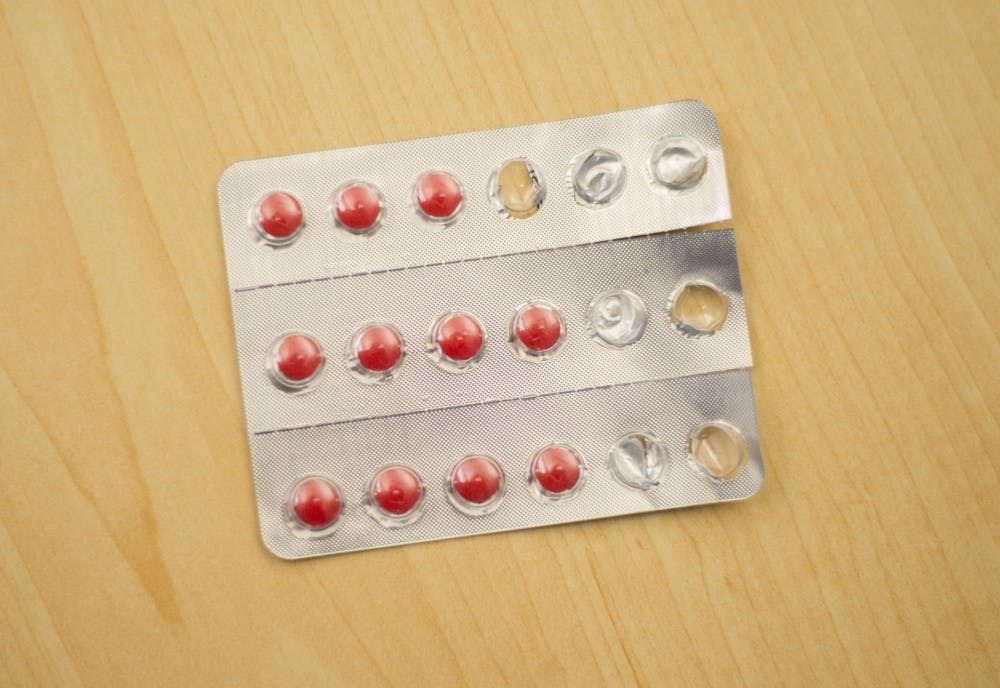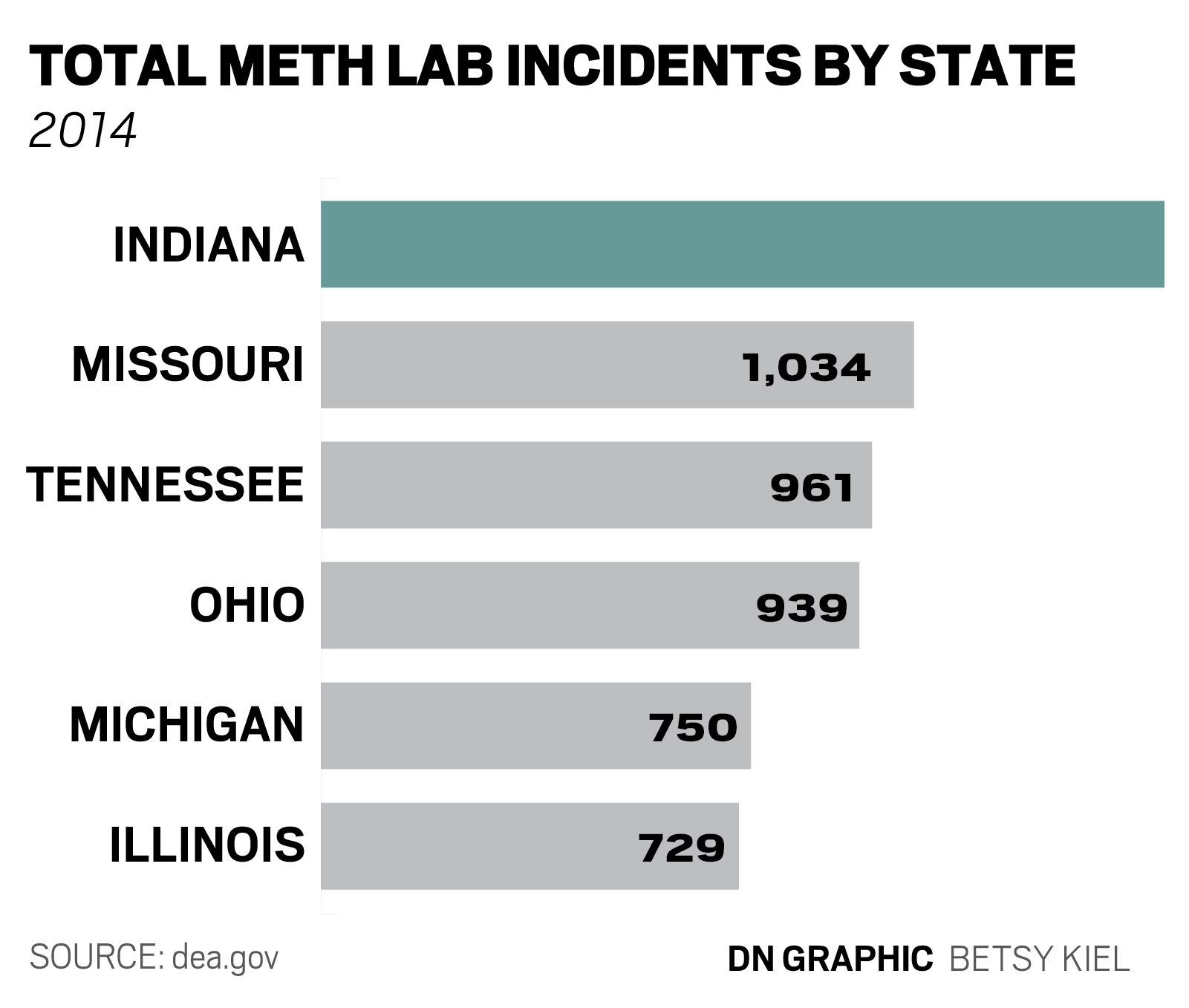 After leading the nation in meth lab seizures for two years, Indiana passed a law attempting to cut down on meth labs — by limiting access to a common cold medicine that can be used to make meth.
After leading the nation in meth lab seizures for two years, Indiana passed a law attempting to cut down on meth labs — by limiting access to a common cold medicine that can be used to make meth.
On March 21, Gov. Mike Pence signed Senate Bill 80, a bill that empowers pharmacists to deny the sale of products containing pseudoephedrine (pronounced SUDA-fe-DRIN), the active ingredient in Sudafed, and ephedrine, which is what pseudoephedrine breaks down to in the body. Pence also signed two other bills that require certain meth felonies to be logged in a database so meth offenders cannot purchase pseudoephedrine.
When Senate Bill 80 takes effect in July, pharmacists will be protected from lawsuits if they deny a customer pseudoephedrine without prescription because they suspect the customer is “smurfing,” or buying it to sell to a meth cook.
“If someone has an allergy, if they have a cold, they can still get medicine,” the bill’s co-author Sen. Randall Head said. “But if you are trying to smurf, the pharmacist has the authority and more legal coverage to block that sale and keep you from getting that necessary ingredient.”
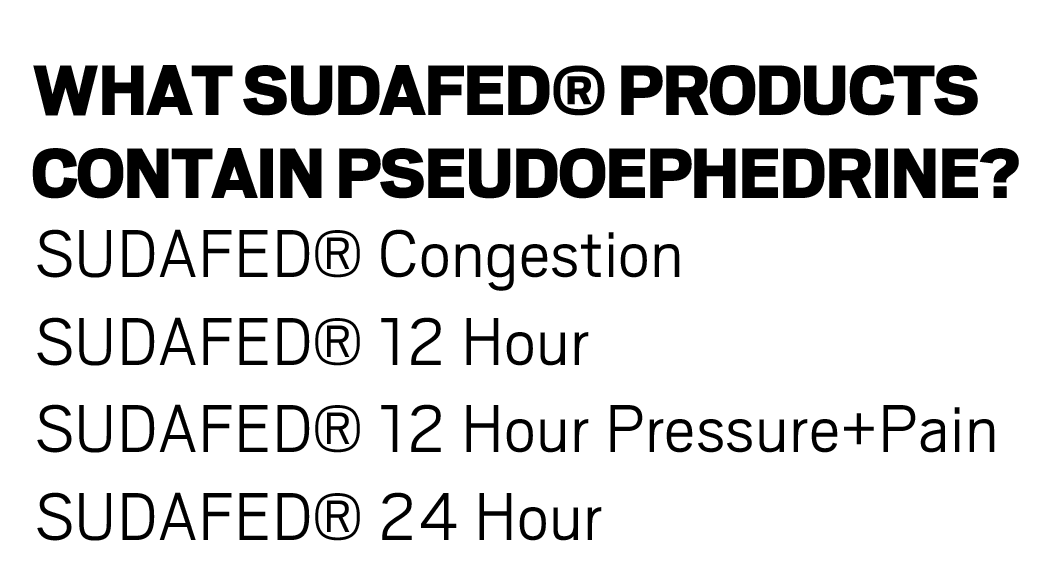 “Smurfing” is when people canvass pharmacies to buy pseudoephedrine and bring it back to a meth cook. By federal law, consumers are allowed to purchase only a certain amount of medicine containing pseudoephedrine in a given year and the purchases are tracked, so meth cooks hire smurfs instead of buying the medicine themselves.
“Smurfing” is when people canvass pharmacies to buy pseudoephedrine and bring it back to a meth cook. By federal law, consumers are allowed to purchase only a certain amount of medicine containing pseudoephedrine in a given year and the purchases are tracked, so meth cooks hire smurfs instead of buying the medicine themselves.
The only active ingredient in some types of Sudafed is pseudoephedrine. Even with the restriction, individuals can still purchase enough to take two Sudafed 12-Hour caplets every day for 36 weeks out of the year.
Certain types of Sudafed, or its generic versions, are the only medicines that can be used to make meth, Delaware County Prosecutor Jeffrey Arnold said.
“Most people who think they take pseudoephedrine don’t even take it,” he said. “They think anything they take related to allergy or cold is pseudoephedrine — it’s not.”
Sudafed is located behind the counter, but does not require a prescription.
Other over-the-counter allergy medicines, like Zyrtec D, have pseudoephedrine but they are combined with other active ingredients that prevent it from being used in meth-making.
The Indiana law was inspired by an ordinance in Fulton County that cut down pseudoephedrine sales.
When pharmacists were given more authority in Fulton County, pseudoephedrine sales dropped 50 percent from June 2015 to December.
Head, who represents Fulton County, brought the bill to the statehouse along with co-author Sen. James Merritt.
Head said it was one of the last bills the legislature passed, and there were changes to the bill the night before to help allergy sufferers get their medicine after pushback from drug companies and consumer groups.
Head thinks this new law is “huge,” because in the past, bills to make pseudoephedrine prescription-only have not gotten any traction. This is a step forward and a compromise, he said.
“We’ve criminalized meth and criminalized dealing and sent a lot of people to prison but aren’t putting a dent in the problem,” he said. “Doing this is huge. [We’re] giving pharmacists the power to tell people they aren’t going to get Sudafed. They can’t tell every smurf, but they can tell a lot of them.”
According to the law, customers who have a relationship on record with the pharmacy can get pseudoephedrine without a prescription. For those who do not have a relationship on record, the pharmacist can make a professional judgement on whether or not to sell them the product.
If the pharmacist denies sale, the customer is free to get a prescription or purchase alternative products. The Indiana Board of Pharmacy will make rules to define what a relationship on record is and how pharmacists will make their determinations.

Pseudoephedrine pills can be used to make meth. DN PHOTO BREANNA DAUGHERTY
EFFECT ON PHARMACISTS
The Indiana Pharmacy Alliance, which represents pharmacists in the state of Indiana, supports the new law. However, they would not have supported a prescription mandate.
Indiana Pharmacy Alliance Executive Vice President Randy Hitchens said this law will put more scrutiny on the sale of the product.
“Retailers selling this product in Indiana, a few haven’t been paying really close attention to who is buying this stuff,” he said.
Hitchens said the law will allow pharmacists to be “good Samaritans” as they evaluate patients.
In practice, if a pharmacy customer wants to buy large quantities of pseudoephedrine, the pharmacist can request a doctor’s name to call for a prescription.
“You don’t need 100-pack of a product like this,” Hitchens said. “Someone using for meth is going to be walking out of the store.”
He said the IPA isn’t concerned about pharmacists’ safety if they deny sale of pseudoephedrine to people who may be criminals, because they deal with much more dangerous drugs behind the counter every day.
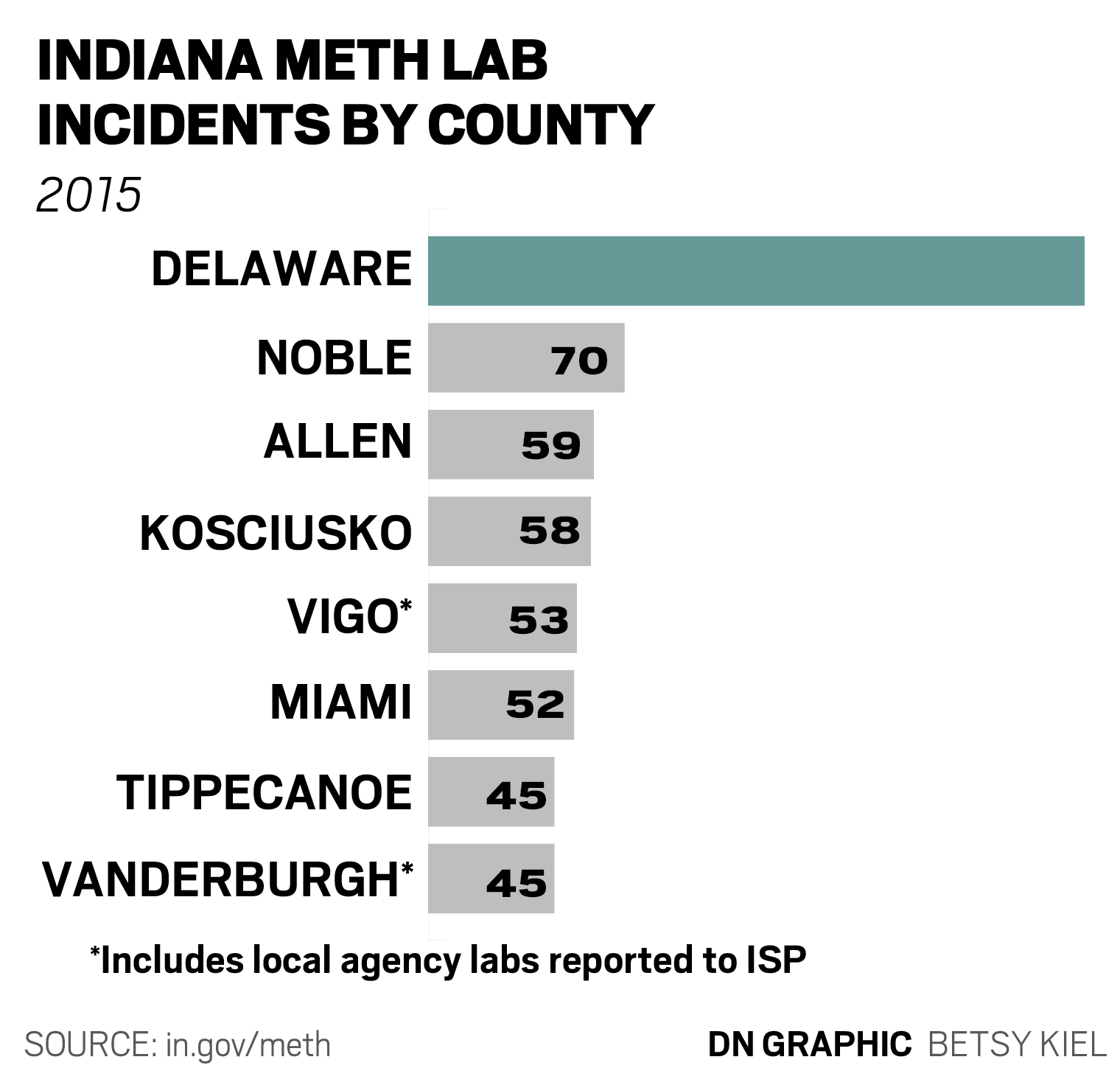 REGULATIONS AND SMURFING
REGULATIONS AND SMURFING
This is not the first time Indiana lawmakers have tried to pass legislation to cut down on meth labs.
Past efforts to combat meth-making in Indiana have “exacerbated it,” Delaware County Prosecutor Jeffrey Arnold said.
Since 2012, in Indiana, pharmacists are required to track all pseudoephedrine sales in the NPLEx database. Per federal law, consumers can buy 61.2 grams of pseudoephedrine in one year, and must present an ID purchase. That can amount to about 510, 120 mg Sudafed 12-Hour pills.
Arnold said that law led to the smurfing issue.
“When they started that, it sounded like a hell of an idea. But the problem was that started creating smurfing,” Arnold said. “The numbers have continued to go up. How can you argue that is effective?”Right now, Delaware County leads Indiana in meth lab busts — by a long shot — with 234 clandestine meth labs seized in 2015, outpacing the second-highest county by about four times, according to data from the Indiana State Police.
Those numbers have increased in the recent past. In 2012, Delaware County had 62 meth lab busts. It increased in 2013 to 109; and in 2014 to 148.
Arnold attributes the number to increased law enforcement efforts in Delaware county — and the exponential nature of smurfing.
It’s estimated that every one meth cook with smurfs will teach 10 people how to cook meth.
“Over the years, the meth cookers have taught the smurfs how to cook; they go out and get their own smurfs; it keeps on rolling,” Arnold said.
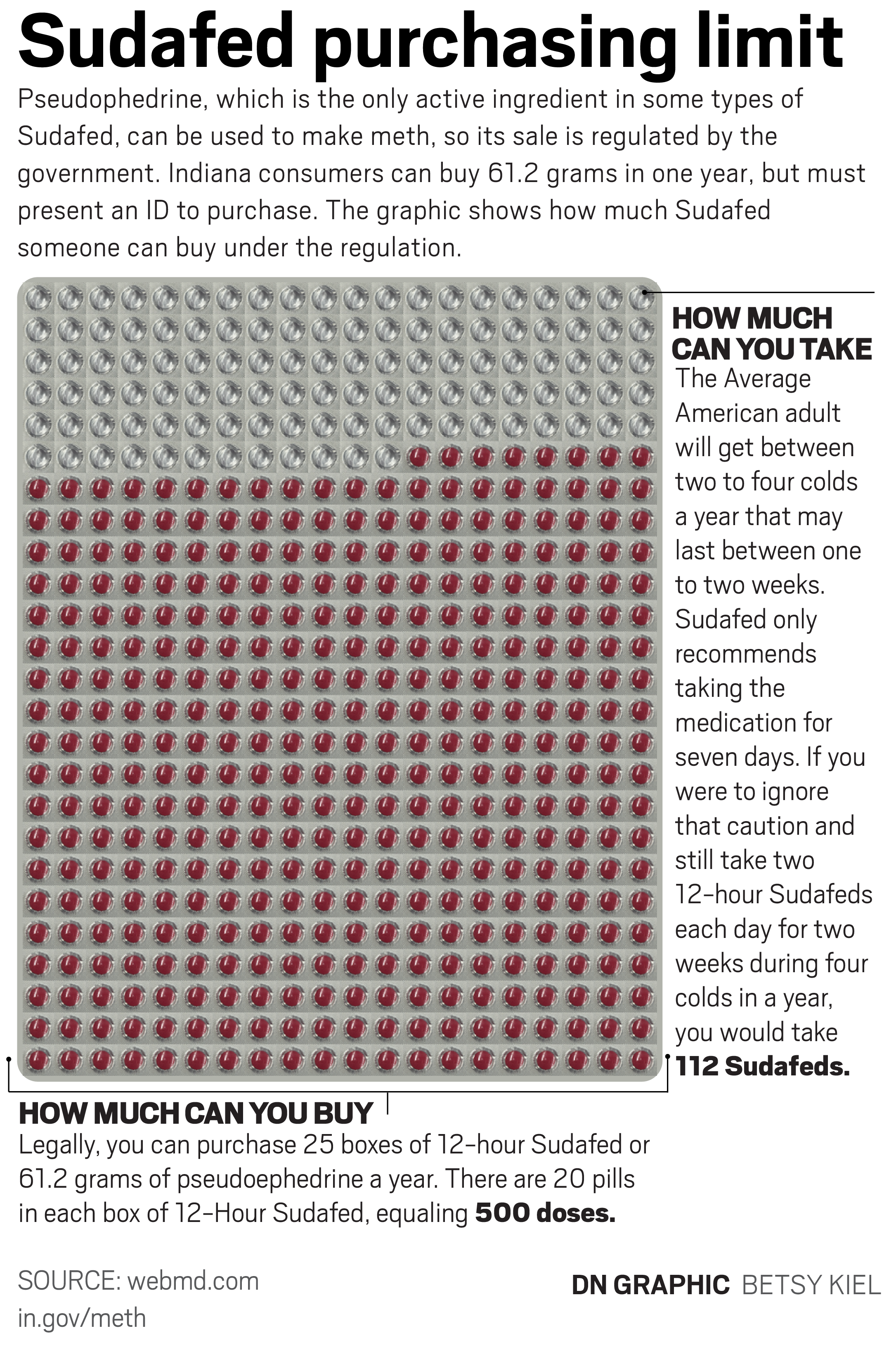
WILL IT BE ENOUGH?
Sen. Head said that pharmacists have already been able to deny pseudoephedrine to customers, but this law will give them explicit protection from lawsuits.
Arnold also thinks many pharmacists are already trying trying to stop smurfs.
“I also know for a fact that here, when pseudoephedrine comes in, most of the box stores are sold out the day it comes in,” Arnold said. “They turn people away or suggest to those they suspect that they are out.”
He said the new law is better than nothing, and it will bring the issue to the forefront, which is a start, but he maintains that the only thing that can impact the cooking of meth is a prescription requirement on pseudoephedrine.
“The cost [of a mandate] is miniscule compared to the collateral damage of cooking,” Arnold said. “Nobody seems to understand that in Indianapolis. Anybody who says that it’s too much of an inconvenience really doesn’t understand the big picture at all. I think it’s because if it’s not in your backyard, you just don’t really know.”
Representative Sue Errington, who represents Delaware County, balances the wants of officials like Arnold and Mayor Dennis Tyler, who has call for prescription mandate, with the wants of her constituents.
She said people have reached out to her in the past, opposing pseudoephedrine moving to a prescription, and she has concerns about low-income constituents who may have to pay a copay to visit the doctor to get a prescription.
Errington hopes the law is enough and that it will bring some relief to Delaware County.
“I hope it is [enough], and once we use the system, then everybody will be satisfied,” she said. “But if not, we’ll be back next year.”

